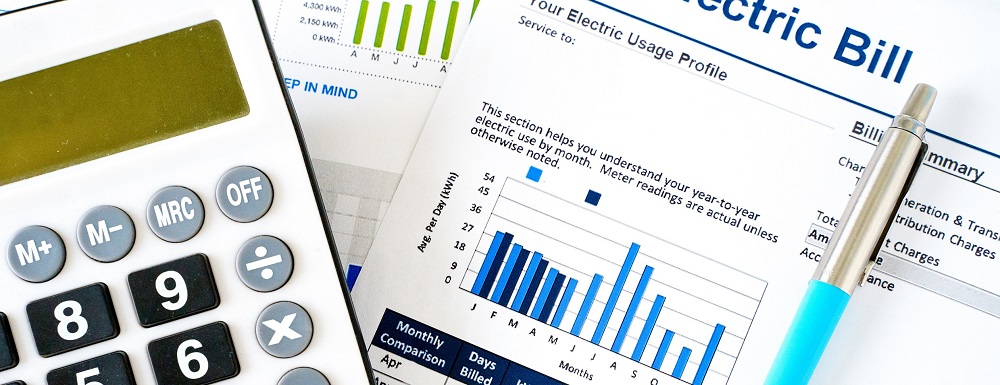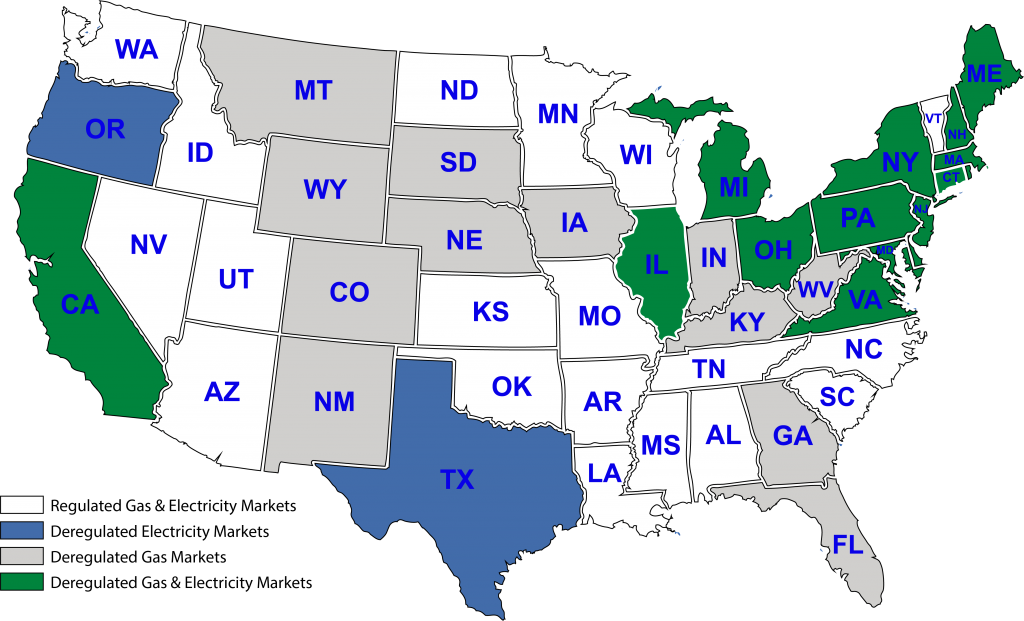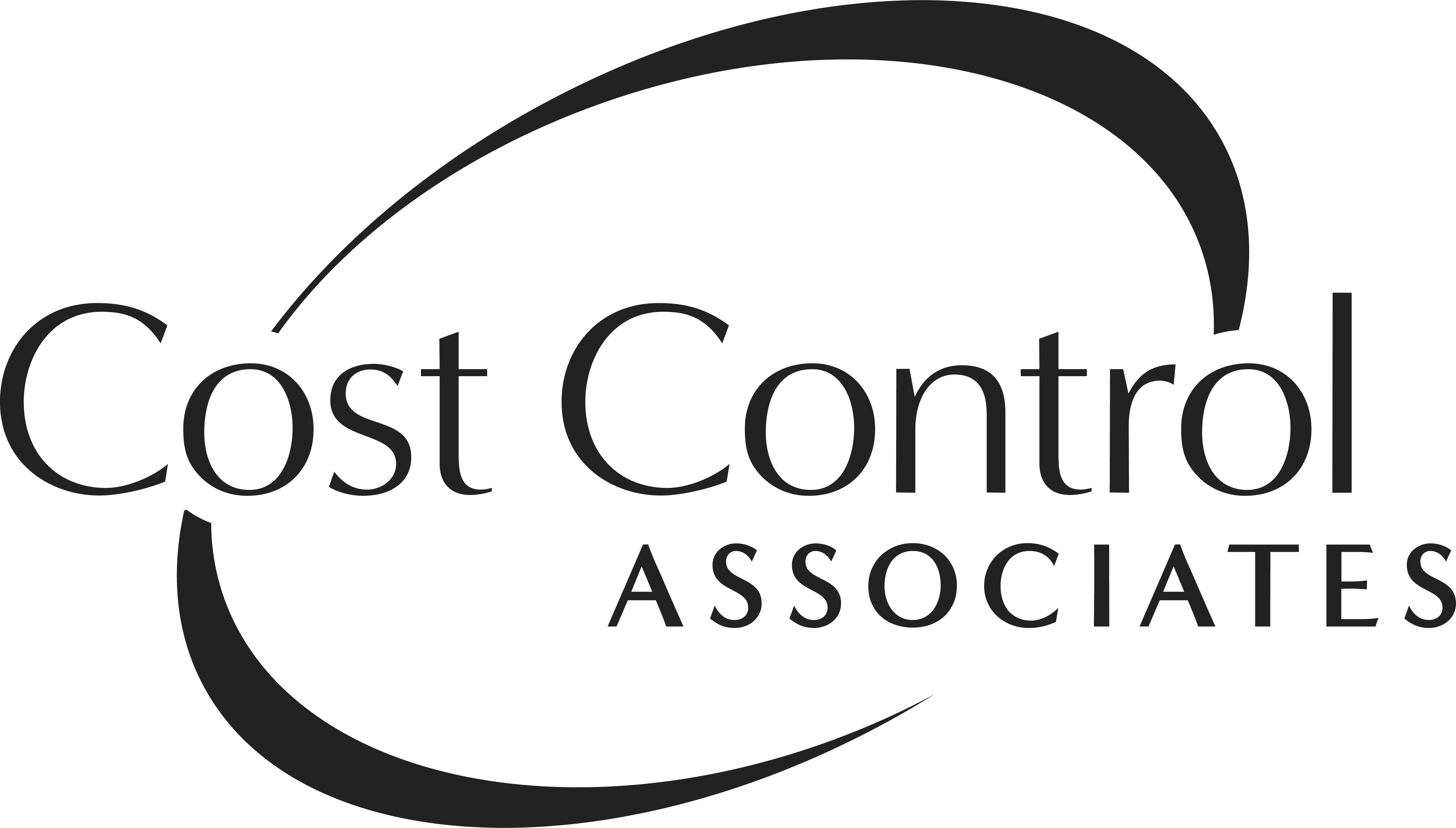6 Things to Know About Your Utility Tariff

The U.S. is divided into regulated and deregulated energy markets. In regulated markets, the utilities own and operate all aspects of power production from generation to infrastructure and distribution. Unless they produce their own power, customers must use the reigning utility company in their region. Customers of regulated utilities benefit from stable pricing and long-term certainty while state-regulated tariffs protect them from unforeseen surprises.
 The tariffs are overseen by the Public Service Commission in each regulated state. The PSC comprises a multi-member board that governs pricing for energy, telecommunications and water. Utility tariffs detail the services the utility will provide and their price.
The tariffs are overseen by the Public Service Commission in each regulated state. The PSC comprises a multi-member board that governs pricing for energy, telecommunications and water. Utility tariffs detail the services the utility will provide and their price.
Here are 6 things you need to know about utility tariffs.
1. What is a utility tariff?
Tariffs are not new. In Medieval times, a “tarifa” was a list of prices or book of rates. By the mid-18th century, a tariff was a classified list of charges made in a business. The Greek origin of the word translates to a “notification” or “something that is made known.” Today’s utility tariffs provide a list of rates and pricing for energy and natural gas provided by regulated utility companies.
To protect commercial and residential consumers from unfair pricing practices, U.S. law requires that regulated utilities prepare a detailed tariff document. It isn’t cheap to produce power, and the utilities must consider their own expenses such as commodities (coal, gas, etc.), equipment, personnel, power-generation costs, operations, infrastructure and delivery.
These costs become part of a formula that helps utilities determine what to charge their customers for power. Each utility company must apply to the PSC in the states where it operates. Once the tariff is approved, it can be enacted. Most utilities, even if not regulated, have published rules and regulations.
The tariff protects utility consumers from sudden price hikes among other things. It specifies service classes, usage, rates, rules and regulations and other guidelines as they relate to pricing and usage. The tariff might also outline rebate opportunities and options for reducing charges based on usage. Each tariff has an effective date that ends when it is replaced by a newly approved tariff. Once approved by the PSC, the utility cannot change those rates unless they apply for and receive approval for a new tariff.
2. Who chooses my business’ rate class?
Many businesses operate a number of facilities that use energy differently. Your administrative headquarters will use energy differently from your data processing center, warehouse or manufacturing plant. Some businesses run around the clock and others only run during certain hours. The tariff outlines different service classes such as General Service, Time of Use (TOU), Real Time Pricing (RTP) and more. Many businesses fall under more than one service class.
A smaller business may choose to start with a general service classification and review it in six months when it has more information about its actual usage. As businesses grow and spread into new facilities and geographies, their power will come from more than one utility company. Each source will have a tariff or public document that describes and governs charges. If your business resides within a municipality with its own energy utility, your services and charges may be described within the town’s municipal codes. Municipalities as a rule are not regulated by a state agency, but the town board provides oversight.
3. Can I rely on my utility rep to select the best rate class for my business?
It is not the utility’s responsibility to find you the best rates. They will work with you to understand your business needs and power usage. When you apply for an account, you should know your expected hours of operation, the demand for consumption, the transformer size at your site, and the equipment you will run.
Your utility representative can help you determine the best class for your situation, but that choice will only be as good as the information you provide about your operations. If a previous tenant used the space for the same purpose, such as a restaurant, the utility can look at past service classes used. If you are setting up service for new construction, your general contractor or construction manager may have knowledge of your power needs.
You are not locked into your service class and may change to another if you find one that better matches your consumption behavior. Another thing to be aware of is how the pandemic has affected your business. If you have closed offices or reduced hours and production, some of your business locations might benefit from a different service class.
4. You are responsible for understanding your tariff.
The most common tariff changes involve rates, but sometimes the utility changes its formula for calculating rates. In rare instances, the utility may change its service class offerings. Sometimes this happens when a rate class doesn’t have enough customers to make it viable, so the utility discontinues the class and rolls you into another class.
The utility is required to give you notice, usually in the form of a bill insert or letter. If your business doesn’t have a mechanism to read such notices, the notification may be missed or misunderstood. The people who open your bills and mail should be aware of this and look for tariff announcements. Though changes may occur at other times of the year, it’s wise to pay extra attention to your mail in the first quarter. To be proactive, visit your PSC website to find out if your utility provider has applied for revisions to its tariff.
Many businesses don’t realize their tariff has changed until they see a sudden spike in charges. Other times rate changes are so minor, no one notices, but they add up over time. Since it is your responsibility to understand your tariff, you are liable for payment on increased charges. If no one is closely monitoring your charges on a regular basis, you are probably paying more than you need to. No business should be complacent about the charges on their utility invoices.
If you are suspicious of a charge, refer to your tariff and then call your utility representative for verification and help. You cannot always get your money back, so it is better to act sooner than later. If you feel you are not getting straight answers, hang up and call again to get a different person. Answers often depend on training and experience, so don’t assume that all customer service reps are alike.
As a rule, larger businesses are aware of their tariffs, but smaller businesses may not know what a tariff is and what it means for them. There is no guarantee that your utility will put you on the best rate for your business. If you need help, consider hiring an energy spend consultant that is not allied with any utilities or suppliers.
5. Where can I find my tariff?
Visit your utility’s website and type “tariff” into the search function on the home page. In most cases, this will lead you to a list of tariffs as well as customer rights and responsibilities and other useful reports and documents. You can also find your tariff on your state’s PSC site, or call your utility directly.
If your power comes from a municipal utility, you can usually find the rules and regulations on your town or city website. Another source is the online Municode Library where you can select your state and town to find information.
6. Who can help me navigate my business’ energy expenses?
An experienced, knowledgeable utility expense management consultant can help. You want someone who can give you unbiased advice with only your company’s best interests at heart. While many utility consultation services are available, a good place to start is with a consultant who will analyze your bills for errors, overcharges and rate opportunities. Ask for a free consultation or quick analysis.
After an initial review, you may want to retain services to monitor your invoice charges going forward. Your consultant will monitor your tariffs and rate classes. When you have an issue, a good full-service consultant will handle any discrepancies for you and follow through to full resolution while keeping you informed of progress. That consultant will build a relationship with your company, so it can keep all your utility cost-saving options in mind.
Valerie Paquin is manager of energy services at Cost Control Associates. Since 1999 she has developed her utility-cost expertise for energy, water/sewer, telecom and waste removal. She earned the designation of project executive in 2012. Valerie received her ABA in accounting from State University of New York-Adirondack. Learn more.
